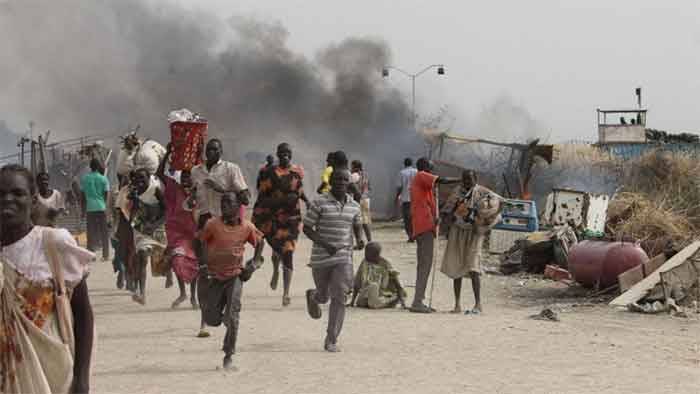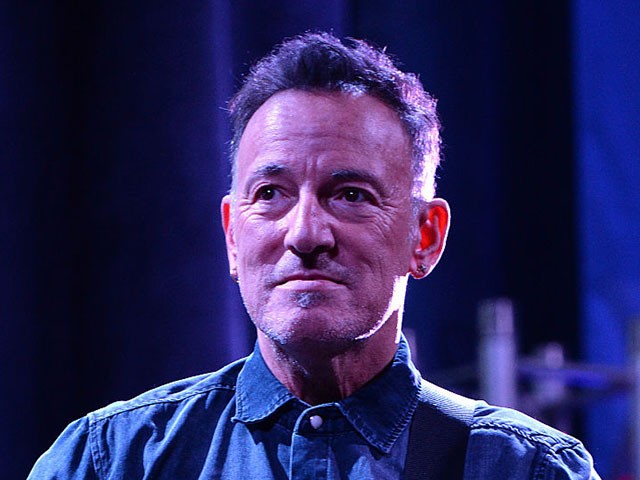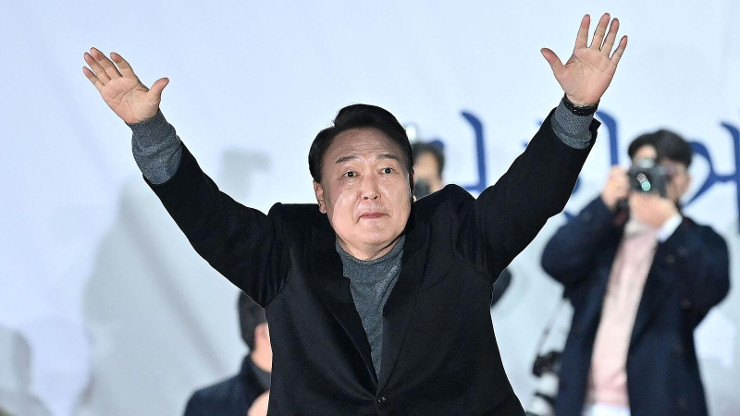
Political uncertainties are continuing in Sudan as 12 Sudanese ministers have resigned in protest of deal with military.
Media reports said:
The cabinet ministers on Monday submitted their resignation to Sudanese Prime Minister Abdalla Hamdok, in protest of a political deal with the country’s ruling military council.
On Sunday, Hamdok was reinstated after signing a political agreement with the head of Sudan’s ruling military council, General Abdel Fattah al-Burhan, to end a weeks-long crisis that threatened to undermine Sudan’s political transition.
While the deal was largely welcomed by the international community, Sudanese political forces have rejected it as an “attempt to legitimize the coup”.
The resigned ministers include the ministers of foreign affairs, justice, agriculture, irrigation, investment and energy, according to a statement issued by the ministers.
The ministers of higher education, labor, transport, health, youth and religious affairs also tendered their resignation.
The statement said the five ministers of the Forces of Freedom and Change (FFC) coalition, which had shared power with the military before last month’s military takeover, were unable to attend Monday’s cabinet meeting.
The ministers did not explain the reason behind their resignation.
The resigned ministers were part of a transitional government led by Hamdok that was dissolved on Oct. 25 by al-Burhan.
At the time, al-Burhan declared a state of emergency and dismissed the transitional government, amid rival protests and accusations between the military and politicians.
Scores have been killed since the Oct. 25 military takeover amid protests calling for civilian rule.
Director Of University Of Khartoum Resigns In Protest Of Burhan-Hamdok Agreement
Fadwa Abdel Rahman, Director of the University of Khartoum, Sudan’s oldest university, announced, on Sunday, her resignation, in rejection of a political agreement signed by the army chief Al-Burhan, and the head of the transitional government, Abdullah Hamdok, in an attempt to end the crisis in the country.
Fadwa said, in a statement: “I, Fadwa Abdel-Rahman Ali Taha, announce a valid and reasoned resignation from the position of Director of the University of Khartoum, in refusal and protest against the political agreement signed today between Abdel-Fattah Al-Burhan and Abdullah Hamdok.”
She added: “Loyalty to the lives of 40 martyrs who rose since the military coup on Oct. 25, 2021 against the document and constitutional legitimacy and the accompanying arrest of the Prime Minister, Abdullah Hamdouk, and a number of members of his government and the dissolution of the government delegated to run the country’s affairs.”
On Oct. 25, a severe crisis erupted in Sudan, where Al-Burhan declared a state of emergency, dissolved the Sovereignty Councils and the transitional ministers and dismissed the governors, after the arrest of party leaders, ministers and officials, in exchange for continuous protests rejecting these measures as a “military coup.”
On Sunday, Al-Burhan and Hamdok signed a political agreement with the aim of ending the crisis, in light of intense international pressure and continuous internal demonstrations calling for the return of civilian rule.
The agreement includes 14 items, the most prominent of which is the cancellation of the decision to relieve Hamdok from prime minister, and the release of all political detainees, and the two parties pledged to work together to complete the democratic path.
The agreement affirms that the constitutional document of 2019 is the main reference during the next stage, with the need to amend it by consensus, in order to ensure and achieve comprehensive political participation for all components of society, except for the disbanded National Congress Party.
This document is for power structures during a transitional phase in Sudan since August 21, 2019, and will last for 53 months, ending with holding elections in early 2024, during which power is shared by the army, civilian forces and armed movements that signed the peace agreement with the government on Oct. 3, 2020.
The agreement also stipulates that the Transitional Sovereignty Council shall supervise the implementation of the tasks of the transitional period without interference in the executive work.
On more than one occasion, Al-Burhan stressed that he had taken the October 25 measures to protect the country from a “real danger,” accusing political forces of “inciting chaos.”
A Set Back
A Middle East Eye report (Sudan coup: Deal with military a ‘setback’, says former foreign minister
22 November 2021, https://www.middleeasteye.net/news/sudan-coup-agreement-military-setback-democracy-says-former-foreign-minister) said:
Sudan’s former foreign minister has slammed the political agreement between Prime Minister Abdalla Hamdok and General Abdel Fattah al-Burhan, calling it a setback for the country’s democratic transition.
Speaking at a virtual panel hosted by the Atlantic Council on Monday, Mariam al-Mahdi – who resigned 24 hours earlier after refusing to collaborate with last month’s coup leaders – suggested the agreement whitewashed the coup, as it remained unclear how much power Hamdok would yield.
“We do not question his (Hamdok’s) legitimacy as a Sudanese leader, but what happened yesterday was a setback,” Mahdi told the U.S. think tank after Hamdok met with his cabinet.
Mahdi, along with 11 other members of the government, met with Hamdok after the deal was announced and submitted their resignations in protest.
“We cannot take it as a starting point,” she said.
“We accept it as a fact that it happened, but we must find a new place that is more suitable for us to build trust and build rapport and to effect our transitional period while protecting Sudan from further setbacks.”
The 14-point agreement also calls for the formation of all transitional institutions, including the legislative assembly and the constitutional court, and the appointment of the attorney general and chief justice.
Addressing the signing ceremony in Khartoum, Hamdok said the political agreement would correct the path of the revolution and political transition in Sudan.
“We have brought Sudan back into the international community, lifted its name from the terrorist blacklist and many other achievements. However, we still have many challenges lying ahead,” Hamdok said.
However, Kholood Khair, managing partner of the Khartoum-based think tank Insight Strategy Partners, said there was not much substance to it.
“In many ways, the agreement itself is not that significant. It doesn’t mention the hows or the timeframe to some of the articles. That means that it [could] be very difficult to implement,” she said at the Atlantic Council event.
International support ‘tone deaf’
The agreement was quickly rejected by a number of political parties and resistance committees in Sudan, including the Sudanese Professional Association and the former ruling coalition of the Forces for Freedom and Change (FFC), which had strongly supported Hamdok after he was ousted.
However, a number of countries including the U.S. and the European Union welcomed the decision and said they were “encouraged” by the steps taken.
Some key U.S. lawmakers have also expressed cautious optimism over the deal, with Gregory Meeks, chairman of the House Foreign Affairs Committee, describing it as “a first step”.
“This is but a first step to undo the harm from an unjustified coup… the world is watching and will hold military and civilian authorities accountable for their actions,” he said.
Khair said these statements underscored the vagueness of the agreement and were harmful to the country’s democratic movements.
“A lot of these responses from the international community come across very tone-deaf, at best, and then at worst, as part of the problem to some of these pro-democracy groups,” she said.
Hamdok’s legitimacy
The deal between Hamdok and Burhan was seen as a surprise by many Sudanese protesters. Hours after the agreement was announced, thousands marched in the capital calling for the Burhan’s downfall.
Some experts have pointed out that Hamdok, whose popularity has risen since the military coup, is now in a weaker position through the agreement.
“What we are looking at here is now, to my mind, a weaker prime minister who is bereft of his political support system, both because they are not included in the agreement, but also because out of a principled stance, as [Mahdi] mentioned, they have all resigned,” said Khair.
“So this just begs the question: what can the prime minister do now to push through these transitional priorities when he does not have at least a buffer between himself and the military?”
Mohanad Hashim, a former BBC journalist and former director at Sudan National Radio, said Sudan’s political parties would likely continue to demand full civilian oversight of the government. However, “not necessarily with Prime Minister Abdalla Hamdok as the person to continue”.
“Prime Minister Hamdok is almost irrelevant for the streets at this particular moment,” he said.
Related posts:
Related posts:
Views: 0
 RSS Feed
RSS Feed

















 November 23rd, 2021
November 23rd, 2021  Awake Goy
Awake Goy 


 Posted in
Posted in  Tags:
Tags: 
















